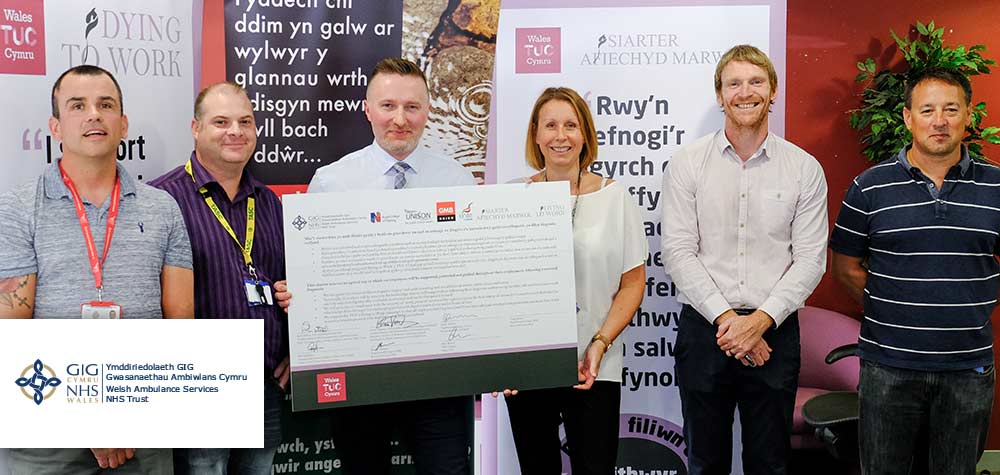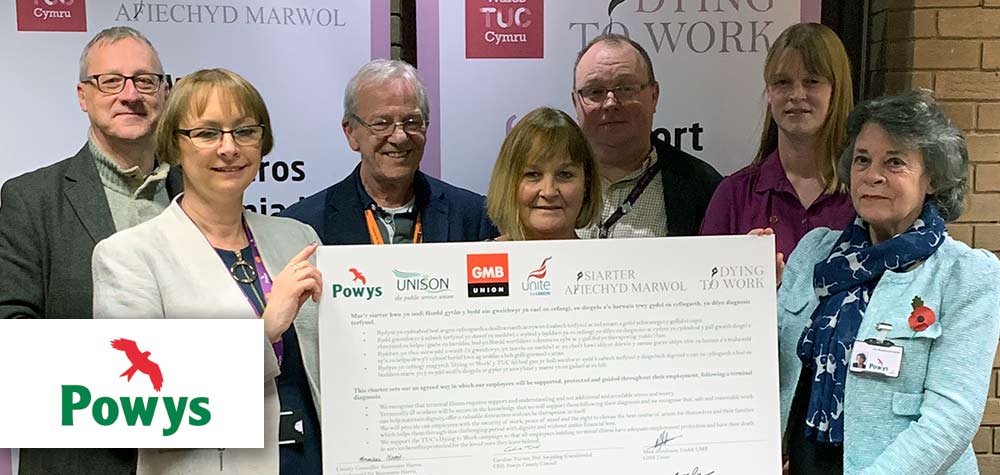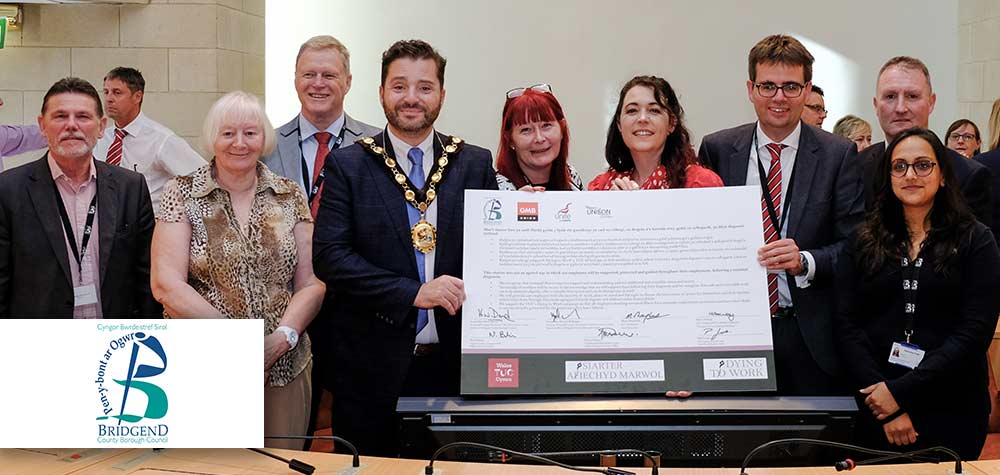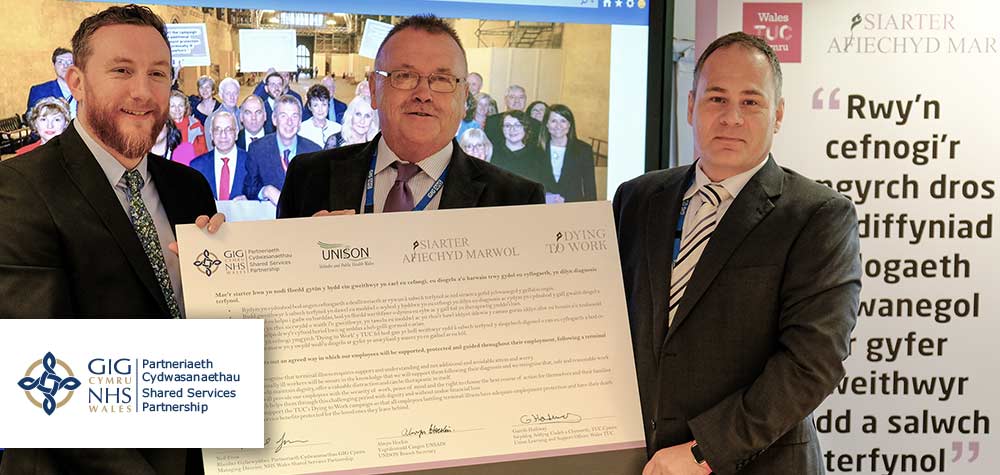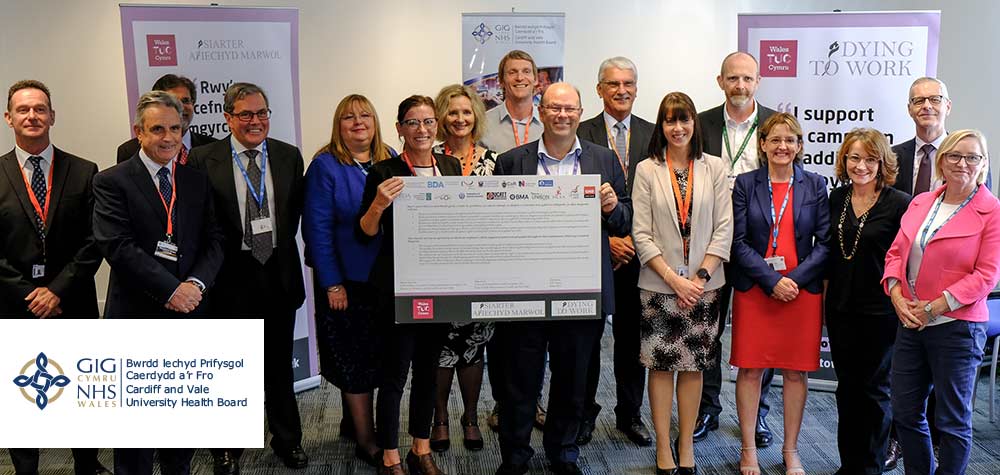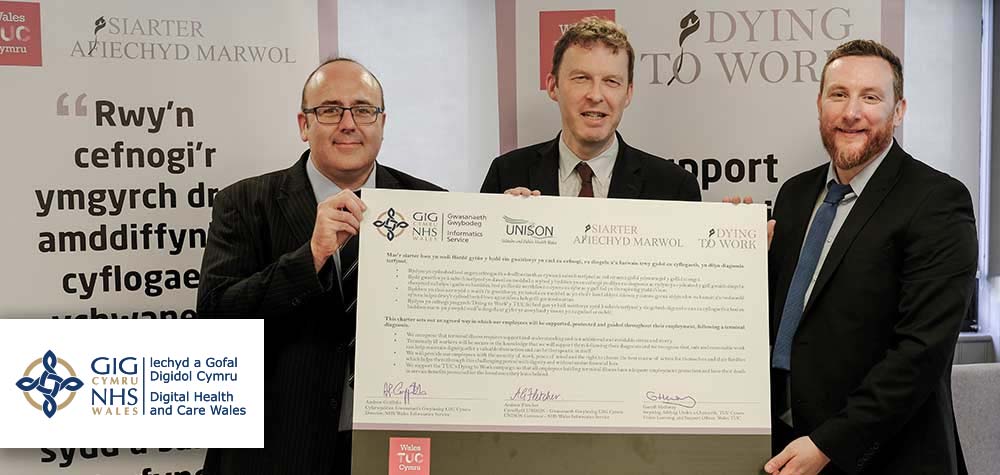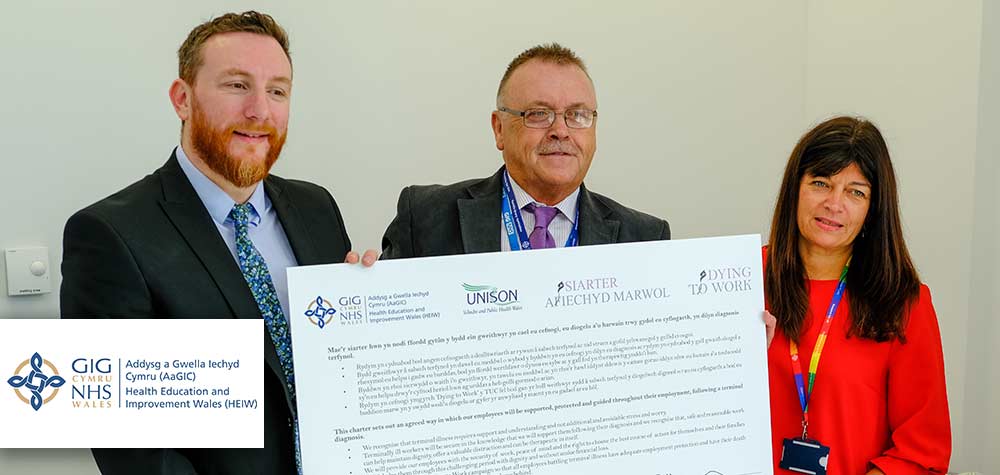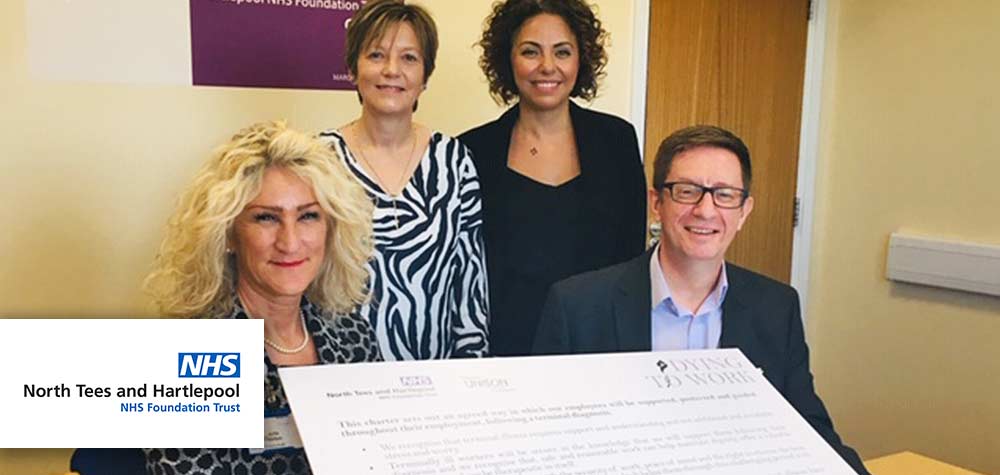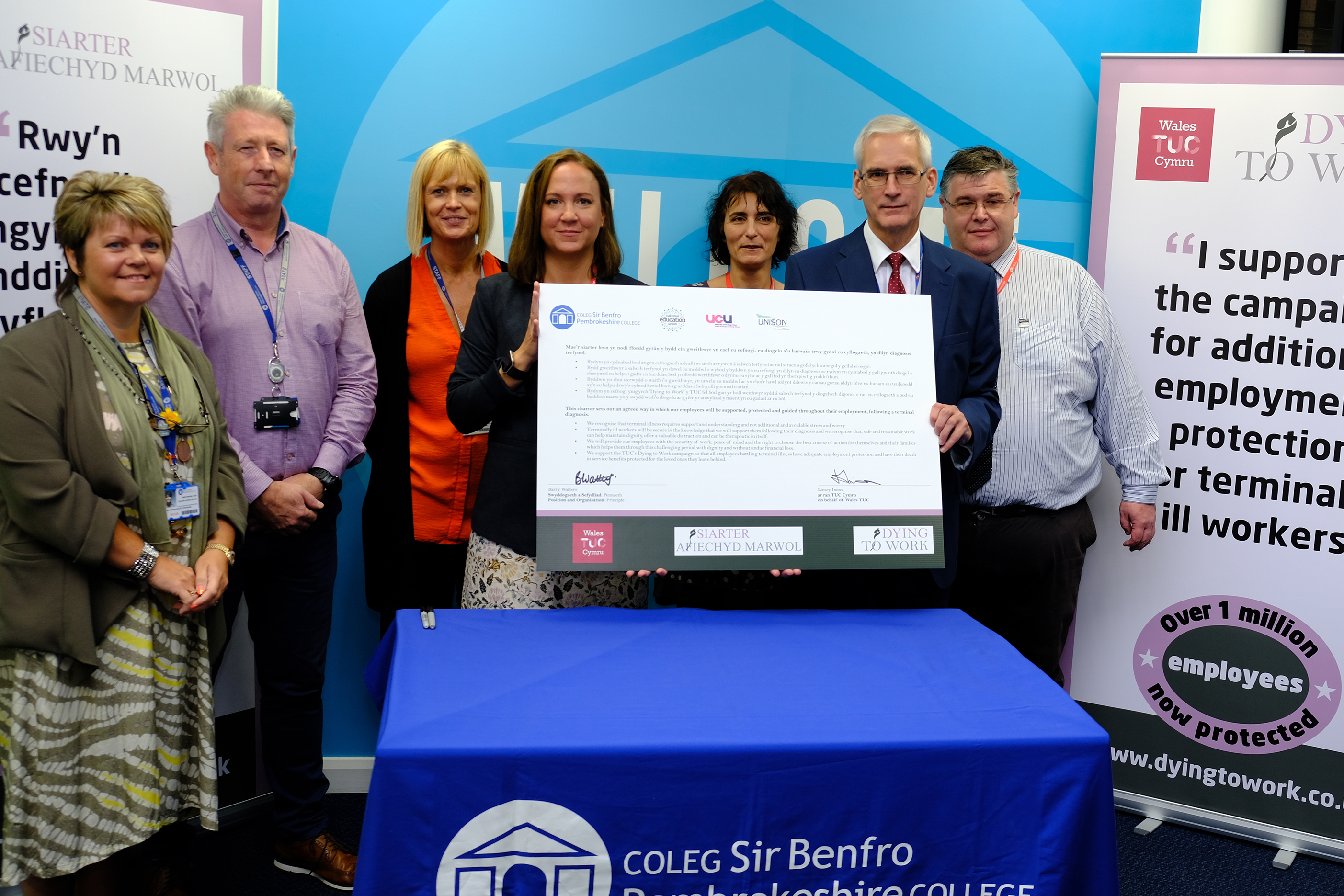Thank you to Cardiff and Vale University Health Board who signed the charter on 19th September 2019 providing protection for their 14,500 employees.
Director of Workforce & OD, Martin Driscoll, said:
“Being diagnosed with a terminal illness is a time of huge emotional stress, fear and uncertainty. We want our staff to be secure in the knowledge that if they do find themselves in that position, we will do all we can to support them. We recognise that safe and reasonable work can help maintain dignity, offer a valuable distraction and in itself be therapeutic, and will provide employees with the security of work, peace of mind and the right to choose the best course of action for themselves and their families. Ensuring that all employees battling terminal illness have adequate employment protection and their death in service benefits protected for the loved ones they leave behind will help to remove unnecessary stress and uncertainty at an already difficult time.”
